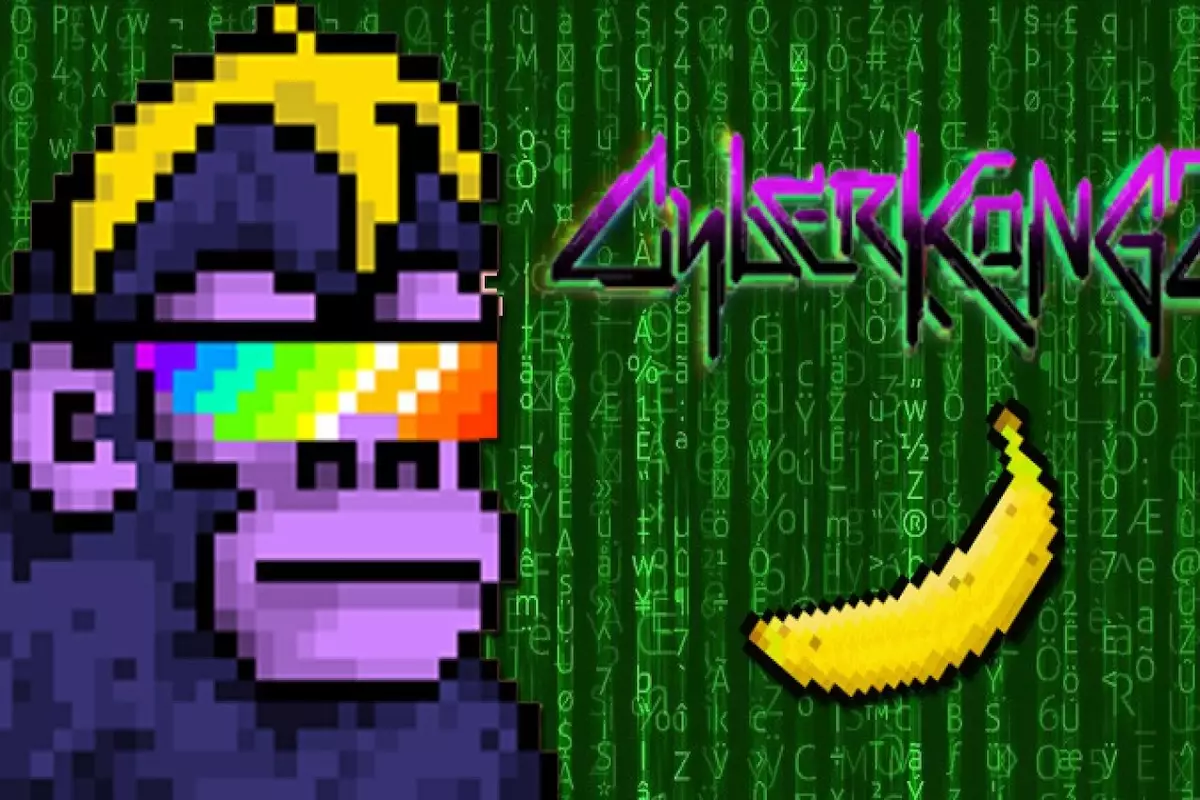The Web3 gaming community is abuzz in the wake of the recent Wells Notice issued to CyberKongz by the U.S. Securities and Exchange Commission (SEC). This notice serves as a warning that enforcement action is possible, dramatically highlighting how NFTs (non-fungible tokens) may be classified as securities. This revelation has the potential to redefine the landscape for digital assets in gaming, urging stakeholders to reassess investment models and the basic structures of blockchain-based games.
CyberKongz’s Genesis Kongz NFTs, introduced in April 2021, have become a focal point for discussions surrounding regulatory compliance and the future of NFTs. The SEC’s assertion that these assets could be deemed securities introduces a significant paradigm shift that is not merely limited to one project but resonates across the entire Web3 ecosystem. This is more than just a legal issue; it poses critical questions about the roles of contracts, sales, and community governance within the token economy of blockchain gaming.
The argument from CyberKongz that it simply migrated contracts, rather than effected a new primary sale, underlines the ambiguity in how NFTs are currently understood within regulatory frameworks. As the SEC continues to scrutinize these digital assets, it highlights the need for a clearer classification system that can foster growth while ensuring investor protection. Without such clarity, the ongoing evolution of Web3 gaming could stifle innovation, as creators become increasingly hesitant to engage in activities that could draw regulatory scrutiny.
The impact of the Wells Notice extends beyond U.S. borders, as international regulatory frameworks vary widely. In Europe, for instance, the forthcoming Markets in Crypto-Assets (MiCA) regulation seeks to create clearer definitions for NFTs, potentially leading to a more stable operating environment. However, the lack of a uniform approach could pose challenges for projects looking to enter multiple markets. Regulatory bodies in Europe are divided, with some arguing that NFTs fall outside traditional securities laws while others push for heightened oversight, particularly for investment-oriented NFTs.
In Asia, jurisdictions like Singapore and Hong Kong are attempting to foster an innovative ecosystem while also closely monitoring the activities surrounding NFTs to mitigate risks. The outcomes in these regions may serve as prototypes for other countries seeking to balance regulatory oversight with the dynamic nature of blockchain projects.
Emerging markets in Latin America and Africa might seem less restrictive at present, viewing NFTs as instruments for financial inclusion and economic development. However, as these countries move toward becoming crypto hubs, they too will need to develop regulatory guidelines that adequately address risks without hampering growth.
As regulations evolve, so too must the strategies adopted by gaming companies. If NFTs are classed as securities, compliance measures related to disclosures, investor protection, and token distribution would become mandatory. This necessitates a rethinking of the fundamental mechanisms that have allowed many blockchain projects to flourish, including innovative economic models and community governance structures.
Failing to navigate this evolving landscape successfully could present dire consequences for startups that have thrived on experimental token economics. Companies must adopt a proactive compliance strategy, focusing on implementing robust Anti-Money Laundering (AML) and Know Your Customer (KYC) protocols. Such implementations would not only serve as legal safeguards but also bolster trust among players and investors alike.
Nevertheless, the crux of the matter goes beyond mere adherence to regulations. Compliance can be viewed as a tool for establishing credibility within an often skeptical marketplace. A transparent approach to regulatory compliance will ultimately create a more sustainable ecosystem that can withstand potential legal challenges.
The broader implications of the CyberKongz Wells Notice are still unfolding, but one certainty remains: regulatory awareness has been thrust to the forefront of the discussion. As different nations grapple with NFT regulations, gaming projects need to stay vigilant. The outcomes of this isolated case are likely to resonate for years, shaping regulatory frameworks that govern digital gaming assets worldwide.
In an increasingly interconnected global market, the success of gaming projects will depend on their ability to adapt. As they work collaboratively with regulators and consumer protection agencies, the aim should be to create an environment that promotes innovation while safeguarding the rights of players and investors.
Ultimately, the CyberKongz Wells Notice may serve as a turning point for the blockchain gaming industry, pushing stakeholders toward a future that is not only compliant but also characterized by transparency and resilience. It’s a significant moment that invites companies to rethink their approaches to compliance, collaboration, and community engagement as they navigate the complicated terrain of NFT regulations.

